The NHS at 70: How Grand National cancer hero Bob Champion paid back his debt to the doctors who saved his life by raising £15m
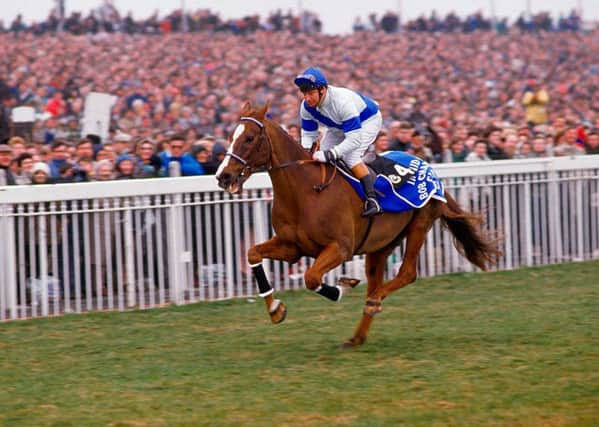

Arguably the greatest sporting comeback of all, certainly the most emotional, the North Yorkshire jump jockey who gave hope to sufferers around the world has now raised, through his charity, an incredible £15m for landmark research on the back of this improbable victory.
Now, to mark the 70th anniversary of the National Health Service, the rider has spoken of his profound debt to the pioneering medical teams and unsung heroes who saved his life – and the groundbreaking work of the Bob Champion Cancer Trust. “There was a porter called Les who liked a bet or two and therefore knew me,” he recalled. “He’d go off and get bottles of orange juice and tins of rice pudding from the little shop on the days I couldn’t make it myself.
Advertisement
Hide AdAdvertisement
Hide Ad“Nothing seemed too much trouble and I knew back then, and still now, hospital staff don’t get the recognition they deserve. We laud pop stars and actors and false heroes, when these carers, nurses, doctors and porters truly are the real thing. Since those days, I have been so lucky to work alongside the very best of the NHS and I am incredibly proud to be able to call so many friends.”
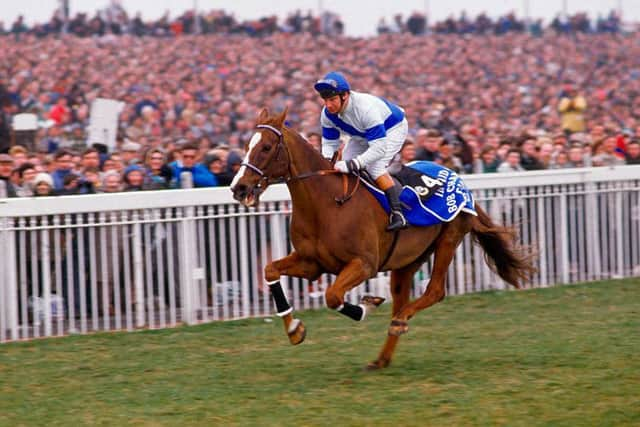

Even now, he had no comprehension of the magnitude of his achievement when he, and the gallant Aldaniti who has recovered from a life-threatening leg injury, galloped towards the Aintree winning post. Seventy last month, Champion tells The Yorkshire Post that his thoughts in the final strides turned to the doctors and nurses who treated him at the acclaimed Royal Marsden Hospital near London – and the hope that the fairytale win would afford to cancer victims when he, himself, had no one to inspire his own recovery from testicular cancer.
He had not bargained, however, for the outpouring of emotion that led to once-a-year punters sending their winnings to the hospital that treated him and the acclaimed film Champions starring the late John Hurt.
Nearly 40 years later, he still receives letters from cancer patients, and their relatives, and makes the time to send back a personal response because he can still remember his own ordeal – chronicled in a new memoir I’m Champion, Call Me Bob – when the haunting word ‘cancer’ was invariably a ‘death sentence’.
Advertisement
Hide AdAdvertisement
Hide AdHe’s only too pleased to be able to set the record straight. “There was nobody for me to look up to and say how they got through it when I was undergoing my chemotherapy because it was so brutal,” he says. “It was a death sentence. They gave me a 35 per cent chance of recovery and they said I would never ride again because of the damage to my lungs. Today more than 90 per cent of people with testicular cancer will make a full recovery as long as it is caught soon enough. That’s a huge difference – but there’s more to do.”
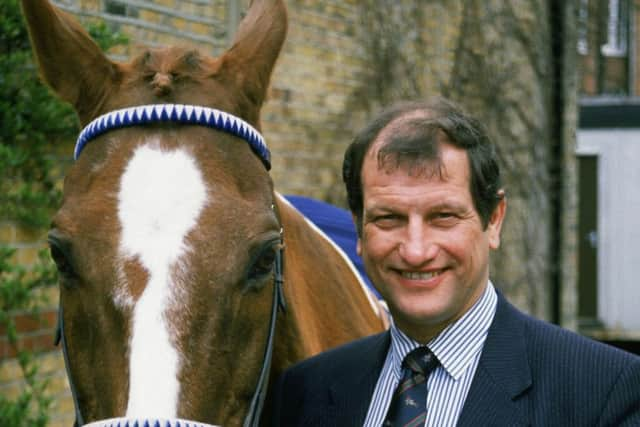

Just like Champion never gave up when his loved ones were fearing for the worst, he continues to tour the country promoting his charity, its life-changing work and to raise funds for two state-of-the-art research centres which are run in conjunction with the NHS.
The first was the Bob Champion Cancer Research Unit at the aforementioned Royal Marsden and which, over the years, has been looking at a range of medical challenges, including how to increase the effectiveness of chemotherapy while lessening the debilitating side-effects like hair loss and nausea.
It is here where the Aldaniti Rehabilitation Unit and the Bob Champion Lounge became trailblazers for the NHS. “Initially I thought we could perhaps brighten up a number of areas in the hospital,” said Champion. “I could only give advice based on my direct experiences and whilst every member of medical staff was great, you did spend a great deal of time sitting around waiting. Some of the places you spent a lot of time in were fairly drab. I really believed, and thankfully my gut instincts were to be borne out with later studies, that having the right aesthetic atmosphere can make a difference to the healing process. I didn’t think it was rocket science.
Advertisement
Hide AdAdvertisement
Hide Ad“You know yourself that if you enter a hospital waiting room that’s painted horribly, and has no atmosphere, you immediately feel worse and a bit depressed. Imagine how that affects the emotions of someone who is looking death in the face?”
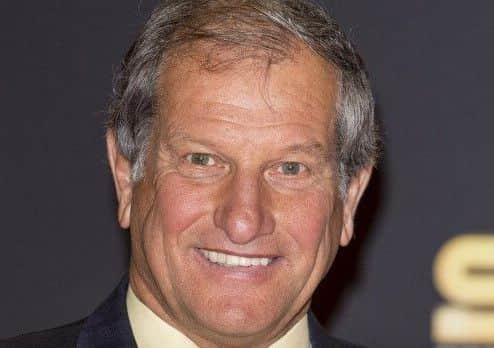

It’s some legacy and he is immensely proud that this approach has been adopted by hospitals across the country and it is why the racing broadcaster Derek Thompson, a friend from childhood, believes, that Champion’s surname should be preceded by two very deserved words – ‘Sir Bob’.
Meanwhile Champion’s pride was palpable three years ago when The Bob Champion Research and Education Building opened, a collaboration by the University of East Anglia (UAE) in partnership with the Norfolk & Norwich University Hospital.
It provides state-of-the-art laboratories for researchers to explore new treatments and, specifically, the groundbreaking work of the aclaimed Professor Colin Cooper to develop a urine test that can diagnose prostate cancer and ultimately, whether it is the aggressive type. Once taboo, men’s health is now on the agenda.
Advertisement
Hide AdAdvertisement
Hide AdChampion admits to being teary-eyed when he saw his name on the plaque and at the good fortune over his own diagnosis at a time when he thought he was unbreakable and took the NHS for granted whenever he was treated for a heavy fall.
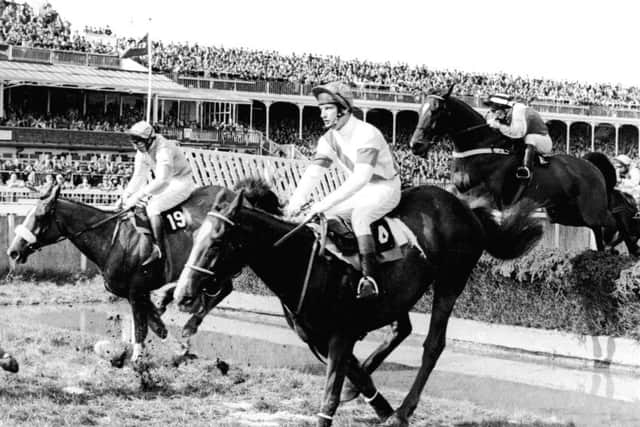

Winning the next race, he says, was all that mattered because it was his life. He had ignored small lumps, possible early signs of cancer, before he suffered a final fence fall from a horse called Fury Boy at Stratford on May 11, 1979.
Well clear of their only rival, the quick-thinking Champion caught the horse and, in doing so, was kicked painfully in the ground as he remounted the horse and cantered over the line to secure an unlikely win.
Though one of his testicles was swollen, he did not seek medical attention until a holiday later that summer in America when he mentioned his discomfort to a glamorous vet who he was dating at the time. She implored him to return home to go to hospital where he was told he had cancer and it had already spread to his chest.
Advertisement
Hide AdAdvertisement
Hide Ad“That’s the thing I’d really like men to consider. I’d had this issue for ages but kept ignoring it, or more to the point, kept allowing my embarrassment to prevent me from seeking medical advice,” he said.
“For months I’d thought it would just go away. Yet, even when my concern grew, I didn’t ask for help. It’s quite pathetic really and later on I would dwell on how much simpler my treatment would have been had I acted earlier. Saying that, had I acted even later, there wouldn’t have been any treatment.”
By then, it would have been too late to save his life. However Champion was also indebted to the unswerving loyalty shown by Aldaniti’s trainer Josh Gifford, and owner Nick Embiricos, who never lost faith in their stricken jockey and said Champion would ride the horse in the National.
If early diagnosis can save one more life, the trust’s work will, says the former jockey, have been worthwhile.
Advertisement
Hide AdAdvertisement
Hide Ad“I’m proud of all of my achievements,” he adds. “Winning the National was always an ambition from a very, very early age when I started riding in Guisborough. Beating cancer – I didn’t want to die. And the Bob Champion Cancer Trust. That work has lasted a lifetime. Yet, without the NHS, none of this would have been possible and we shouldn’t knock it.
“All I did was win a horse race.” And much more.
Testicular cancer survival rates have greatly improved in recent years.
In the last 40 years, the percentage of patients who survive the condition for more than a decade after diagnosis has increased from 69 per cent to 98 per cent, according to statistics from Cancer Research UK.
The charity says the improvement is “probably because of combination chemotherapy” techniques.
Advertisement
Hide AdAdvertisement
Hide AdTesticular cancer is not clearly linked to any preventable risk factors and there were more than 2,200 cases diagnosed in the UK in 2015.
It tends to affect men aged between 15 and 49, with typical symptoms including painless swelling or lump in one of the testicles and changes in shape and texture.